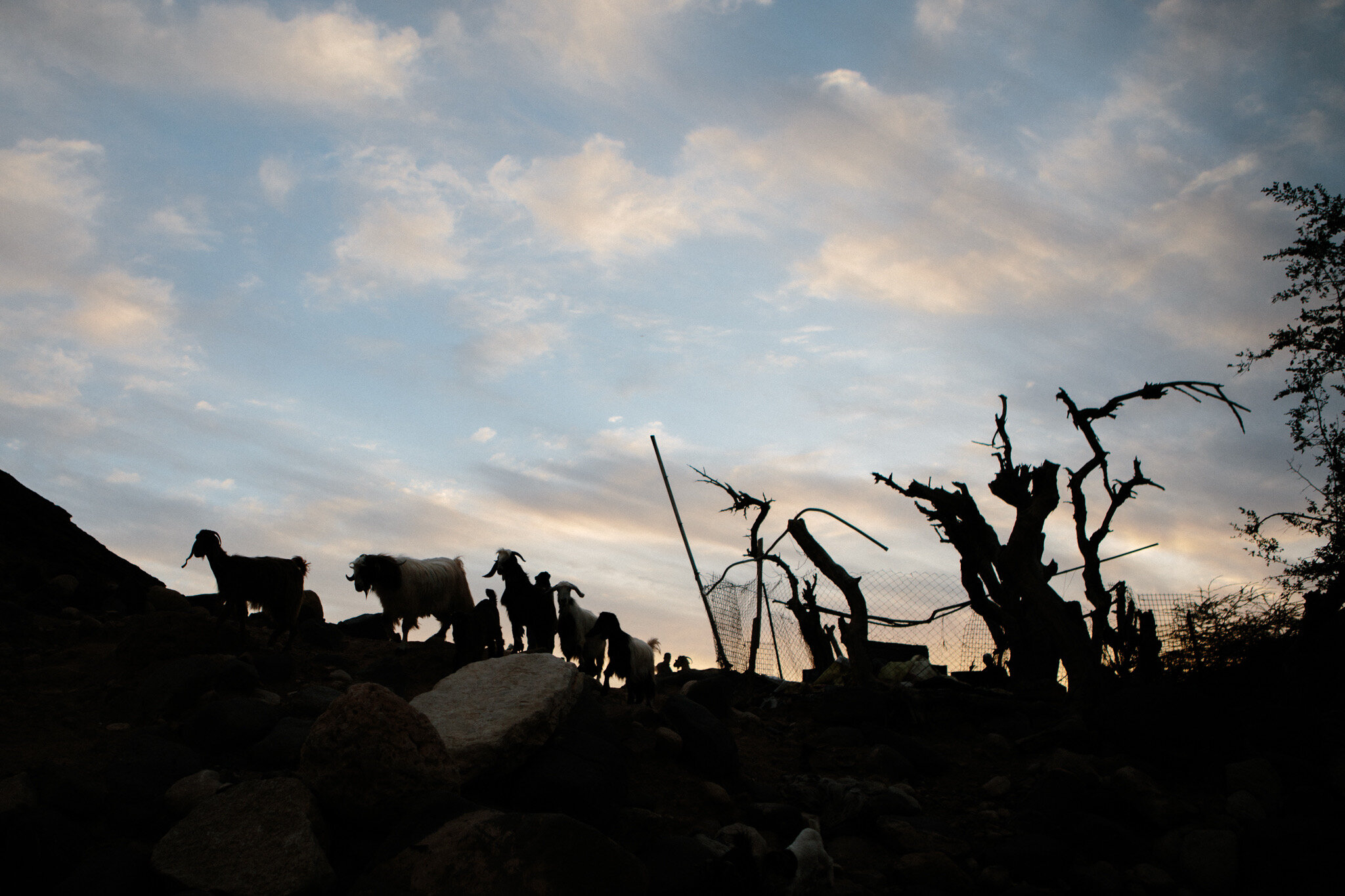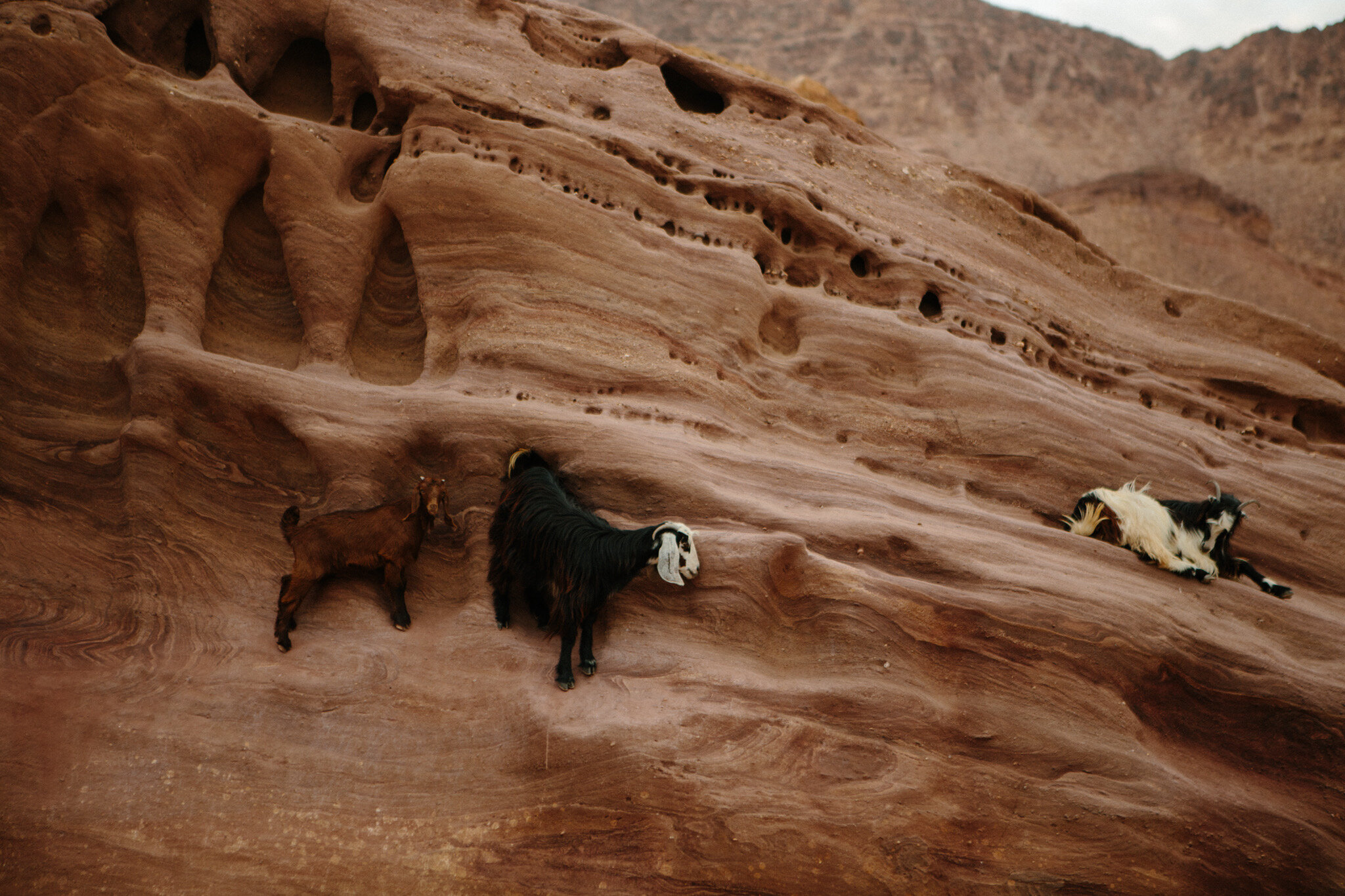If you want an accurate representation of our time at the Dead Sea, Google “floating in the Dead Sea” and read an influencer’s travel blog. Look at the photos, but envision that everyone is freezing cold. It’s raining. Replace all the suntanned tourists with sketchy-looking teenagers, and think of every cocktail as if its a piece of trash. That’s what it felt like for Emmanuel and I, until we finally interacted with the main element: the ancient salt lake. The Dead Sea itself is an unimaginable, ecstasy-inducing experience with which beautiful people drinking margaritas in the sun cannot contend. It is a sacred place, special, and so so salty.
Whizzing along the King’s Highway, racing the sunset and the time limit on our rental car, Emmanuel and I drove four hours with fierce determination to swim in the Dead Sea.
As the surrounding desert turned abruptly to tropical rainforest at the lowest point on earth, I Google’d (with our rental car’s portable hotspot) cheap beaches open to the public. We made it to the first only to find, not tourists and locals mingling in the sun, but instead police cars lining the entrance. They informed us that this particular beach had been shut down, so we kept searching.
Then we watched the first drop of rain splatter. This should have been a sign for us to turn around and stop trying, like nature waving a giant red flag, but we looked the other way. That first droplet soon revealed a downpour, which was just enough to make us rethink the whole plan. We’d relented our dream of swimming in the Dead Sea, when a glimmer of sunshine--of hope--peaked through the clouds. If it were possible, we were doing it.
We continued the search and finally arrived at a beach that looked more like the set of a carnival-turned-horror movie: still drizzling, grim, and completely deserted. We approached the cashier, who spoke little English. Neither of us speak any Arabic, which made it difficult to convey our desperation. The man managed to communicate that we didn’t have enough money. (People always find a way to make that clear.) And they didn’t take cards. We hung our heads. We should know better by now.
With enough persistence, Emmanuel negotiated a way for us to pay in US dollars. We were finally in! It’s the moment we’d been waiting for! We’d driven four hours just for this! We hesitated to admit it, but in actuality, it felt more like a crime scene than anything. I felt safer flying down the cliff-lined highway.
The few locals that were there wouldn’t stop staring at us foreigners. They probably wondered from afar about our frantic disposition. As the sun was setting fast behind Israel, we had little time to stop and enjoy (and little aesthetics around us).
As one does at the Dead Sea, I slathered mud all over myself before getting in the water. It’s therapeutic for the skin, so they say. Inching slowly into the oddly warm water, I knew we’d made the right decision. With every step I took further into the salt bath, more doubts melted away, until the water swept clear beneath my feet, and I floated. And I kept floating. I couldn’t stop even if I tried. The novelty of it felt euphoric. How is this possible?
We only had about 10 minutes in the water, so we savored every second. The rain had cleared everyone else from the beach, and we’re certain we were the only people in the Dead Sea for just a moment. It was still, silent, salty.
I disrupted the peace by accidentally splashing a drop of water my eye. The burn felt impossible to remedy, since the rest of my body was covered in salt and mud. It felt like a good ending point--abrupt, and not ideal, but appropriate for the experience.
Before returning to the car, we took icy cold showers, exposed to the rain that had reappeared. Arriving back to Amman soaking wet and covered in a thin film of salt, we returned our rental car two hours late. We surely looked more like criminals than travelers, and we felt just as unstoppable.
Nothing could keep us from taking our moment in the Dead Sea—not rain, not a line of police cars, not even running out of cash. We reveled in the memory of the day, which already felt distant. A certain thankful sadness sets in when it’s time to go home. The whirlwind was over, but we’d made it.









